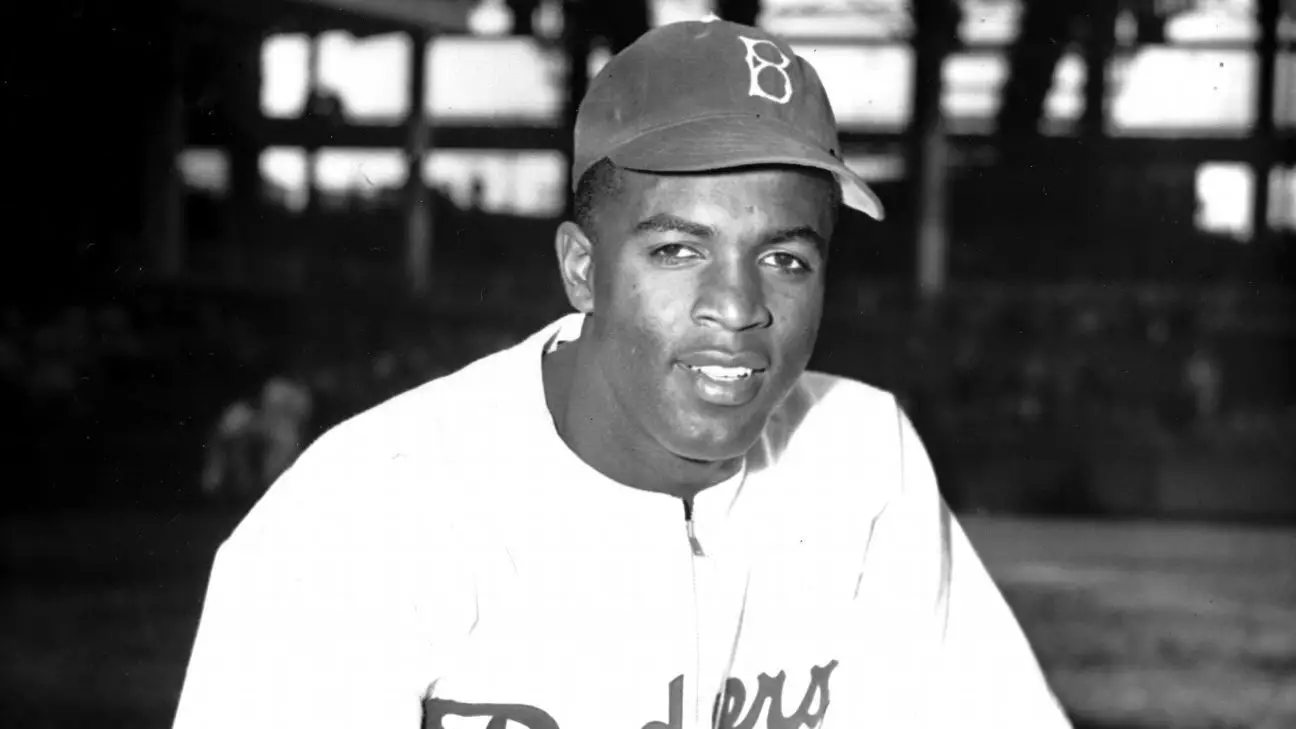In an era where history frequently finds itself embroiled in political discourse, the Department of Defense’s recent handling of Jackie Robinson’s military service exhibits the complexities involved in our societal narratives. The Pentagon initially deleted an article that commemorated Robinson’s contributions during World War II, only to restore it following public outcry and scrutiny. This episode is symptomatic of a broader struggle within institutions about how to confront and represent the past, particularly when issues of Diversity, Equity, and Inclusion (DEI) are involved.
The Defense Department’s strategy to refresh its digital content stemmed from a controversial directive, seemingly aimed at excising DEI-related materials. John Ullyot, the Pentagon press secretary, defended the removal by disentangling historical recognition from descriptors like race or ethnicity, asserting that such identifiers detracted from honoring the unifying patriotism displayed by American service members. However, this stance raises questions about the perception of history as a mere collection of soldiers’ accolades, devoid of the complexities that race and identity bring to the narrative.
Robinson’s Dual Legacy as a Soldier and Icon
Jackie Robinson is celebrated for two defining roles: as a stellar athlete who broke Major League Baseball’s color barrier in 1947 and as a soldier who served honorably in the U.S. Army. Drafted in 1942, Robinson entered the military during a period marked by racial segregation, ultimately joining the 761st Tank Battalion, a unit known for its exemplary bravery. His decision to challenge segregation even within the armed forces—refusing to move to the back of an Army bus—placed him at the forefront of civil rights. It makes his legacy richer but also more complicated.
This duality—excelling in sports while fighting against racial injustice—reveals a monumental figure whose influence transcends athletic prowess. On Jackie Robinson Day, celebrated annually on April 15, Major League Baseball honors not just his athletic achievements, but the spirit of resilience and the fight for equality he embodied. The symbolic permanent retirement of his jersey number, 42, serves as a reminder of this ongoing struggle for inclusion, particularly in environments still grappling with systemic discrimination.
The Interplay of Politics and Historical Representation
The Pentagon’s efforts to delink Robinson’s service from his racial identity mirrors a hesitance to tackle the intricacies of historical narratives openly. The narrative that emphasizes patriotism without acknowledging the social contexts that shape these narratives risks erasing the very essence of figures like Robinson. It seems politically convenient for some to regard historical figures solely as embodiments of heroism, but this ideology discounts the systemic barriers they faced and fought against.
This tug-of-war over historical representation raises critical questions about whose stories are told and how they’re framed. The response from different segments of society, including MLB’s attention to the situation, indicates a desire to retain the complex narrative surrounding figures like Robinson. It is essential to recognize that the legacies of such individuals cannot truly be appreciated without acknowledging the challenges they overcame due to societal prejudices.
Lessons for Future Generations
As we reflect on Jackie Robinson’s multifaceted legacy, it becomes clear that his story is not isolated within the context of sports or military service. Instead, it resonates within a broader conversation about race, equity, and justice. The political maneuvers aimed at sanitizing narratives can only serve to stifle meaningful dialogue about the progress still yet to be made in achieving true equality.
In an age when historical narratives are continuously revisited and reevaluated, we have a responsibility to engage with them critically, ensuring they embody not only the valor of heroes like Jackie Robinson but also the realities they confronted. The call to remember these complexities is not merely about the past; it serves as a guide for future leaders and advocates looking to forge a more inclusive and equitable society. The conversations surrounding Robinson are as vital today as they were during his groundbreaking career, urging us to question how we honor those who fought both on the battlefield and the playing field for a more equitable future.

